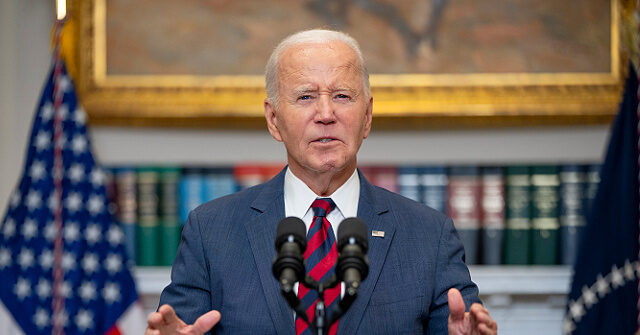On a recent episode of CNN’s “Laura Coates Live,” Representative Jasmine Crockett from Texas discussed President Biden’s stance on potentially pardoning his son, Hunter Biden. During the interview, she expressed her belief that President Biden initially meant what he said regarding his intentions not to grant a pardon. However, Representative Crockett also indicated that circumstances have dramatically shifted since then. Biden is no longer the clear front-runner for a second term, and now faces the reality of a former President, Donald Trump, who has been convicted of a crime and appears to be surrounded by controversial individuals. This change in the political landscape, according to Crockett, has prompted the President to reconsider his position—suggesting a protective instinct towards his son amidst the ongoing political turmoil.
Crockett elaborated on the topic, drawing from her experience on the Oversight Committee, noting that the scrutiny Hunter Biden has faced is politically motivated. She characterized the situation as “gamesmanship,” wherein Hunter’s legal troubles were leveraged as a means to target President Biden directly. The representative asserted that the attacks against Biden and his family are rooted in a political struggle rather than genuine concerns for justice or accountability. By framing it this way, Crockett distills the complex political maneuvers surrounding Hunter Biden’s situation into a narrative that underscores the interplay between familial loyalty and political pressures.
When pressed by host Laura Coates about why President Biden publicly declared his unwillingness to pardon Hunter, Crockett acknowledged a lack of definitive answers. Nevertheless, she reiterated that the President’s earlier conviction was shaped by a different context, one in which he was still positioned as a strong candidate for re-election. As the political realities have shifted—with Trump’s legal challenges and continued influence—the implications for Hunter Biden’s case have evolved. Crockett suggests that Biden’s earlier assertions cannot be viewed in isolation from the broader political environment, which has changed substantially since he made those comments.
Crockett’s remarks also hint at a broader narrative regarding accountability in politics, particularly as it relates to the family members of political figures. She seems to imply that the ongoing investigations into Hunter Biden are part of a larger strategy to undermine not just his credibility but also that of his father. The implication is that the attacks are not solely about Hunter’s actions, but are designed to create a narrative of corruption within the Biden administration. This perspective frames Hunter’s situation as a battleground for larger political disputes, where personal and familial spheres become entangled with public political life.
Furthermore, Crockett highlighted what she perceives as the potential dangers posed by Trump’s return to political prominence. With references to discussions around retribution that Trump has made on the campaign trail, she suggests a climate of threat that may necessitate protective actions by Biden. The mention of “questionable figures” surrounding Trump reinforces the idea that there are significant risks associated with a Trump-led administration. By emphasizing these concerns, Crockett seeks to paint a portrait of a precarious political landscape in which familial ties and political strategy intersect unpredictably.
In summary, the exchange between Representative Jasmine Crockett and Laura Coates encapsulates critical themes regarding political dynamics, familial loyalty, and accountability. Crockett’s insights point to the complex interplay between personal and political realms while reflecting on how changing circumstances may influence a politician’s decisions. With the stakes higher than ever and the potential for retribution looming large, the discussion underscores the necessity for leaders to navigate these challenges carefully—particularly when the stakes involve their own family members. As the 2024 election approaches, such conversations promise to shape the narratives surrounding the Biden administration as well as the broader political discourse.

